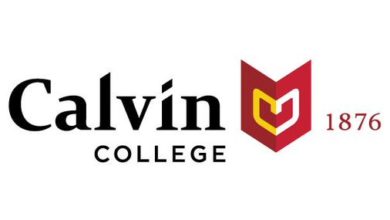You are a U.S. citizen and you want to become a doctor, but U.S. medical schools are no longer an option because of low admissions statistics. Is it time to consider international medical schools? If so, what are some important factors you should take into account? If you decide to go abroad, how do you decide which schools to apply to?
1. Will you be able to get a job in the U.S.?
The ultimate success indicator for medical schools, U.S. or non-U.S., is the school’s match list. If you attend a U.S. medical school, the odds are in your favor. According to data from the National Resident Matching Program (NRMP), 93.7% of U.S. allopathic medical school seniors matched to MD residency programs in 2013. 75.4% of graduates from osteopathic medical schools matched as well while only 53.1% of U.S. citizen international medical graduates (IMGs) matched. Although this data does not take into account the “prematch” offers that only IMGs can accept, these results still reflect the difficulty for IMGs to obtain U.S. MD residencies.
Do your research on each foreign medical school. You will have to call the admissions office and speak with them directly because most schools often do not post their match results online. Even if the schools do post match results online, you must interpret them carefully. You want to see what percentage of students matched successfully to categorical positions, which are specialty matches and guarantee board eligibility (the difference between categorical and preliminary positions). If you want to work as a U.S. MD in the future, make sure you go to a school that has a strong tradition of matching well. Here are instructions on how to enter a U.S. residency as an IMG.
2. Do you want to match into a competitive residency?
Although it is difficult to derive from the NRMP match data, IMGs have a much more difficult time matching into competitive residencies. There seems to be a natural bias against IMGs because of the perceived level of preparation of these applicants. Although it is possible to match into a well-sought residency, competitive specialties are competitive for a reason. They are difficult to get into even if you went to a U.S. medical school. With that being said, it is generally more difficult for IMGs to match into competitive residency programs.
3. How well do each school’s students score on the USMLE?
Matching to a U.S. residency largely depends on the USMLE step 1. Therefore, if you are thinking about attending an international medical school, you want to know how its students score on the board exams. If they are scoring well, you can deduce that the school is doing a good job in preparing their students.
If you attend a U.S. medical school, passing the USMLE steps 1 and 2 are usually not a problem. Unfortunately the same cannot be said about many international medical schools. Some of these schools have a hard enough time getting their students to pass the exams, let alone preparing them to score well enough to obtain competitive residencies.
4. Will you be able to do your clinical rotations in the U.S.?
Once again, factor 1 will also depend on whether the school you attend has connections to U.S. residencies. Since rotating is an important time to build contacts for future residency placement, attending a school that has a network of affiliated U.S. hospitals is key. You want rotations that are Accreditation Council for Graduate Medical Education (ACGME) accredited. Remember that there is a huge difference between a school that has established connections with U.S. hospitals and a school that simply allows its students to rotate in the U.S. (given the students arrange it themselves).
5. Is the school accredited properly?
The National Committee on Foreign Medical Education and Accreditation of the US Department of Education (NCFMEA) determines whether the process in which a school has been recommended is comparable to that of the Liaison Committee on Medical Education (LCME), the U.S.’s accrediting organization. If a school’s accreditation is comparable to the LCME process, then the country in which the school is located can apply for federal loans for its students.
6. Will I get federal financial aid?
This factor is strong connected with factor 5. Not many international medical schools have accreditation and connections to offer U.S. federal financial aid. Therefore, you will need to figure out how you will finance your education. Typically schools that have their students rotate in the U.S. also have financial aid connections.
7. Will you have the resources to help you succeed?
This will largely depend on the quality of preclinical and clinical education. Does the school have faculty members from U.S. institutions? How is the quality of the facilities? What resources from the school are readily available? These will all play a part in whether you will become a good doctor or not.
8. Can you deal with the discrimination or stigma?
There are people and programs that will look down on you for not attending a U.S. medical school. You will be scrutinized more carefully, having up to make up lost ground to your U.S. medical graduate counterparts. Are you ready to deal with that?
9. What is the language of instruction?
If instruction is taught in a language that you are not fluent in, you cannot go to that school. Period.
10. What will be your quality of life?
Can you deal with living in a foreign country? What will the housing situation be like? Will it be safe for you? Many of the foreign medical schools that are popular with U.S. applicants are in developing countries. This means that many of the amenities you enjoy in the U.S. may not be available. Although living in a foreign country can be a pro or con, make sure you know what you are practically getting yourself into.
Even when considering all these factors, it also important to remember that there is tremendous variability amongst international schools. Some, such as the “Big Four” in the Caribbean, have a proven track record of placing graduates into U.S. residencies. There are others that have less than 50% graduation rates. When you are doing research on these schools, be sure to not only carefully inspect their website but also speak directly with the school’s staff, faculty, and alumni. Going to medical school is a big investment. But attending an international medical school is much riskier. You want to make sure you know what you are getting yourself into before you decide to apply.
Read more about medical school and the residency match



